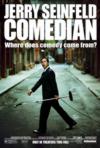
| Joe Leydon, from the San Francisco Examiner, a stupid name for a newspaper, even in California, informs us that Hot Chick is “laugh-out-loud funny!,” complete with exclamation point. Is there a way to laugh silently? I do not believe that there is. |  |
| C.W. Nevius is of the opinion that “The Ring is so good, it's scary.” Wuh? Generally, does not the fear associated with theatrical presentations lie in the possibility of them being not good? Why should I fear what I enjoy? Is this film equivalent to a substance like cocaine, whose use people may enjoy immensely, despite how potentially and very often actually dangerous it is? I found no subtitle for C.W. Nevius, so I can only assume this person is a consumer advocate of some sort, who was originally urging people to not see this film, for fear that it may kill them. Advertisers are so devious. |  |
| Peter Travers of Rolling Stone magazine referred to 8 Mile as “a cinematic event,” in such a way as to suggest that an event is a good thing to be. But for around six months after it happened, I tended to hear (and still do, on occasion) people refer to a couple of airplanes crashing into a couple of buildings as “recent events,” without any sign of implication that they enjoyed said events. |  |
| Jesse Cagle of TIME magazine says of And the Chamber of Secrets that it is “even better than the first.” So first what? You see, the film at issue here is a sequel, which means that there was another quite similar which was released prior to this one. So I am to believe that this sequel is an improvement upon its predecessor. How do I know that the predecessor was not absolutely horrid, so horrid, in fact, that to improve upon it is among the minutest of tasks? It turns out, I know of this first film. I do recall, last year, overhearing that it was “magical.” Well, of course a movie about sorcerors is going to be magical. Was it thought that Warner Brothers would spend $100,000,000 (likely estimate) making a little ball pass through a plastic cup? Was it expected that a couple of caricaturically British children would be unlinking a couple of metal rings? You be the judge. That's what people say when they can't think of a good answer to their own question. |  |
| Peter Travers, again, tells me that Jerry Seinfeld: who is a Comedian is “funny as hell.” I think this comment is meant to be sarcastic. Unless, of course, Peter Travers legitimately finds the eternal suffering of misled souls to be humorous, in which case I'd be not the least bit surprised to know he enjoyed this film. |  |
| A.O. Scott of New York Times fame explains that with Drumline, “You may find it hard to stay in your seat.” All I can gather from this is that it means I'll want to leave. I may find it hard to not stand up and make use of the theatre's exit. |  |
| Richard Carliss, agent of the TIME overlords, sets forth, regarding Treasure Planet, that “this planet is a treasure!” Clearly, clearly, this man needs to be tracked down and locked up. Anyone who can say something like that and not feel shame is a threat to humanity. |  |
| I feel much the same way about Gene Shalit, the Today Show's resident hirsute lunatic, who on a regular basis says things like “Billy Crystal is the fastest fun in the west,” crazy enough already, I know, but he wasn't even talking about City Slickers, the movie Billy Crystal was in which was western-themed. No, Gene Shalit was talking about Analyze That. He must be stopped. If possible, of course, feel free to stop both of them. |  |
| David Moss, of WJW-TV/FOX, Cleveland, whatever that even means, when asked about Star Trek Nemesis will tell you “I liked it better than Star Wars.” You can tell this one didn't come from a positive review. I can imagine... ‘despite all that, it wasn't completely unbearable. At least, I liked it better than Star Wars, but I still want my money back.’ |  |